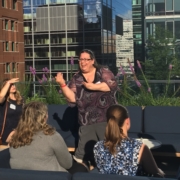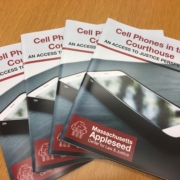Action Alert
For homeless youth, moving through the world without a state identification card can make an already impossible situation worse. Without state ID, they cannot:
- Apply for a job
- Enroll in education programs
- Obtain a library card
- Pick up a package from the post office
- Open any financial accounts
- Enter certain government buildings
- Interact with law enforcement
- Access social services
But homeless youth face unique barriers that prevent them from easily obtaining state ID.
Senate Bill 2568, An Act to provide identification to homeless youth and families, would eliminate the $25 fee required for Massachusetts IDs for applicants experiencing homelessness and reduce verification barriers. This bill is an important step to help homeless youth access potentially life-saving resources.
But the legislative session ends at MIDNIGHT tonight.
This bill passed the Senate unanimously WEEKS AGO. It’s time for the House to do the same. Please join us in urging House Speaker Robert DeLeo and House Ways and Means Chair Jeffrey Sánchez to strongly support its passage in the House before the deadline TONIGHT!
Having a state ID is critical to ensure homeless youth are able to access the resources and opportunities they need, and today is the final day of formal sessions for this two-year legislative cycle. They need your call today more than ever.
Call Speaker DeLeo and Chairman Jeffrey Sánchez to pass Senate Bill 2568 TODAY!
House Speaker Robert DeLeo
617-722-2500
House Ways and Means Chair Jeffrey Sánchez
617-722-2990
Sample Call Script:
Speaker DeLeo/Chairman Sánchez,
I am calling to urge you to support the passage of Senate Bill 2568, An Act to provide identification to homeless youth and families. This bill is an important step in ensuring homeless youth can more easily obtain Massachusetts state ID, which they need to access vital resources and opportunities.
Without state ID, homeless youth cannot apply for a job, enroll in education programs, get a library card, or accomplish many other important everyday tasks.
This bill will break down barriers that homeless youth face daily and make an important difference in their lives. I ask that you please support the passage of Senate Bill 2568 to ensure we continue to care for vulnerable youth in our state.
Thank you for your ongoing support and advocacy on behalf of the homeless youth of Massachusetts.
Want to stay informed on the latest issues Massachusetts Appleseed is working on?
Sign up for future action alerts.







